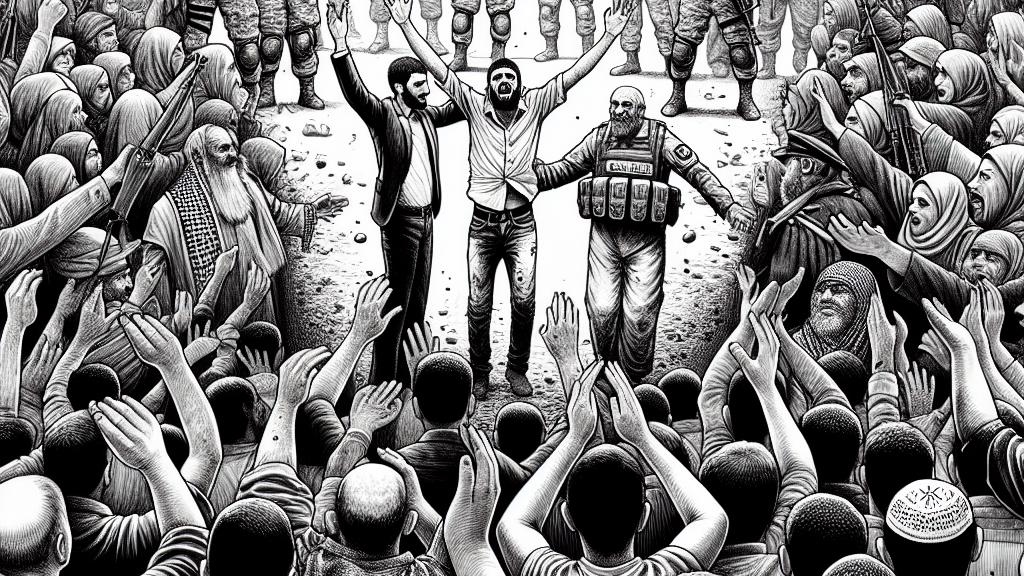Understanding the Release of Hostages in the Gaza Conflict
Overview
- Hamas's recent release of three Israeli hostages marks a pivotal moment amid tumultuous negotiations.
- Trump's provocative comments on Gaza have stirred global controversy and impacted diplomatic efforts.
- Amid these exchanges, the humanitarian crisis in Gaza exacerbates, requiring urgent attention.

The Context of Hostage Releases
On February 8, 2025, the fragile truce between Hamas and Israel took a notable turn as three Israeli hostages—Eli Sharabi, Or Levy, and Ohad Ben Ami—were released in a highly publicized event in Deir Al-Balah, Gaza. This release, the fifth of its kind within ongoing negotiations, follows the horrific attack on October 7, 2023, which left countless families mourning their losses. As people in Tel Aviv watched the footage of these men, flanked by armed militants on stage, emotions ran high. Cheers erupted from the crowd, but for many, joy was intertwined with sadness, reminding them of the loved ones who would never return. For instance, Eli Sharabi's harrowing story—his wife and children murdered during the attack—serves as a powerful testament to the storm of emotions surrounding such releases.
Mixed Reactions and Political Implications
The global reaction to these hostage releases was anything but uniform. President Trump’s recent remarks advocating for significant changes in Gaza’s governance sparked fierce debate and backlash, complicating an already tense situation. Many viewed his comments as dangerously incendiary, capable of destabilizing fragile diplomatic efforts. While jubilant crowds celebrated in Tel Aviv, families of other hostages and those who perished were left grappling with mixed feelings. A poignant call for action came from the Hostages and Missing Families Forum, emphasizing that every hostage matters and that the Israeli government must do everything possible to secure their release. They stressed, 'Now is the time for decisive action!' Such declarations highlight the urgency and emotional depth involved in these negotiations.
Humanitarian Concerns Amidst Hostage Exchanges
Despite these positive developments, the humanitarian situation in Gaza remains dire and complex. With over 47,000 Palestinians reported dead due to the ongoing conflict, the urgency for humanitarian aid has never been greater. Reports reveal that innocent civilians are suffering immensely, constrained by ongoing violence, shortages of medical supplies, and deteriorating living conditions. The release of hostages from Hamas offers a glimmer of hope but does not touch upon the broader crisis affecting countless lives daily. As the cries for peace grow louder, many call for the international community to step in and facilitate long-term solutions. The voices of those suffering, echoing through the rubble of buildings destroyed by airstrikes, serve as a stark reminder: a sustainable resolution lies not just in releasing hostages but also in addressing the humanitarian needs of all individuals caught in this conflict.

Loading...